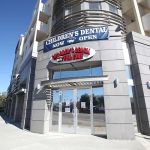Common Causes of Bad Breath (Halitosis) and How to Prevent It
- 1. Understanding Bad Breath and Halitosis
- 2. Common Causes of Bad Breath
- 3. Tips for Preventing Bad Breath
- 4. Treatment Options for Bad Breath
- 5. When to See a Dentist About Bad Breath
Bad breath, also known as halitosis, affects millions of people around the world. It can cause embarrassment and anxiety, especially when it lingers despite regular brushing and flossing. Understanding what causes bad breath is essential to addressing it effectively. Halitosis can be temporary or chronic, and its causes vary from poor oral hygiene to underlying health conditions.
Bad breath can be caused by a variety of factors. Here are some of the most common causes:
- Poor Oral Hygiene: The most common cause of bad breath is a buildup of bacteria in the mouth. Not brushing and flossing regularly leads to food particles left behind, which bacteria break down, producing sulfur compounds that cause odor.
- Food and Drink: Certain foods like garlic, onions, and coffee can contribute to bad breath. These foods contain strong-smelling compounds that are absorbed into the bloodstream and expelled through the lungs, causing an unpleasant smell.
- Dry Mouth: A dry mouth is another major cause of halitosis. Saliva helps wash away food particles and bacteria, but if the mouth is too dry, the bacteria can accumulate, leading to bad breath.
- Smoking and Tobacco Use: Smoking and using tobacco products dry out the mouth, reduce saliva production, and leave behind a strong odor. It also increases the risk of gum disease, which can contribute to bad breath.
- Medical Conditions: Sometimes, bad breath can be a sign of an underlying medical condition. Respiratory infections, diabetes, gastroesophageal reflux disease (GERD), and kidney or liver issues can cause chronic bad breath.
While it may seem like an insurmountable problem, bad breath can often be prevented with simple lifestyle changes and consistent care. Here are some tips to keep your breath fresh:
- Brush and Floss Regularly: Brush your teeth at least twice a day, and floss daily to remove food particles and plaque buildup that can lead to bad breath.
- Stay Hydrated: Drinking plenty of water throughout the day helps keep your mouth moist and wash away food particles and bacteria.
- Use Mouthwash: Mouthwash can temporarily mask bad breath, but it can also kill the bacteria that cause odor. Choose one that is antibacterial for best results.
- Chew Sugar-Free Gum: Chewing gum stimulates saliva production, which helps prevent dry mouth and freshens breath. Opt for sugar-free gum to avoid tooth decay.
- Avoid Certain Foods: While foods like garlic and onions can be delicious, they can also cause bad breath. Limiting these foods can help keep your breath fresh.
If you're dealing with persistent bad breath, there are treatment options available. Depending on the cause of your halitosis, the right treatment may involve improving your oral hygiene routine or addressing an underlying health issue:
- Professional Dental Cleaning: Sometimes, bad breath is due to an accumulation of tartar or plaque, which a dentist can remove during a professional cleaning.
- Prescription Mouthwash: A dentist may prescribe a mouthwash with antibacterial properties if your bad breath is caused by bacteria in your mouth.
- Medical Treatment: If your bad breath is due to an underlying health condition like GERD or a respiratory infection, your doctor will be able to recommend appropriate treatment options.
While bad breath can often be managed with good oral hygiene, it's important to seek professional help if it persists. If your bad breath doesn't improve with regular brushing and flossing, or if it is accompanied by other symptoms such as a dry mouth, sore throat, or difficulty swallowing, it's time to consult a dentist. They can assess your oral health and determine if there's an underlying condition contributing to your bad breath.
If you're struggling with bad breath and want to take proactive steps toward freshening your breath, consider investing in professional oral care products that can help. Whether you're looking for a more effective mouthwash, toothbrush, or a dentist's advice, understanding the causes and treatments for bad breath is the first step to achieving a confident smile.
For more information on how to tackle halitosis effectively and to explore products designed to improve your oral health, click here to check out our latest oral care solutions.







 Preserve Dentistry5.0 (13 review)
Preserve Dentistry5.0 (13 review) Prism Dental Care4.0 (82 review)
Prism Dental Care4.0 (82 review) New Lenox Dental Group4.0 (46 review)
New Lenox Dental Group4.0 (46 review) Familia Dental4.0 (458 review)
Familia Dental4.0 (458 review) Children's Dental FunZone - Pediatric Dentist & Orthodontist - West LA4.0 (1410 review)
Children's Dental FunZone - Pediatric Dentist & Orthodontist - West LA4.0 (1410 review) Florida Dental Implant Institute5.0 (67 review)
Florida Dental Implant Institute5.0 (67 review) The Importance of Oral Health Education During Pregnancy for a Healthy Pregnancy
The Importance of Oral Health Education During Pregnancy for a Healthy Pregnancy Best Tips for Brushing Your Teeth Properly for Healthy Gums: Essential Techniques for Oral Health
Best Tips for Brushing Your Teeth Properly for Healthy Gums: Essential Techniques for Oral Health Why Skipping Dental Checkups Can Lead to Bigger Oral Health Problems
Why Skipping Dental Checkups Can Lead to Bigger Oral Health Problems Advantages of Porcelain Dental Restorations
Advantages of Porcelain Dental Restorations How Can Diabetes Cause Tooth and Gum Problems? Preventing and Managing Oral Health Issues
How Can Diabetes Cause Tooth and Gum Problems? Preventing and Managing Oral Health Issues Healthy Habits for Promoting Good Oral Health and Hygiene: Tips for a Healthy Smile
Healthy Habits for Promoting Good Oral Health and Hygiene: Tips for a Healthy Smile